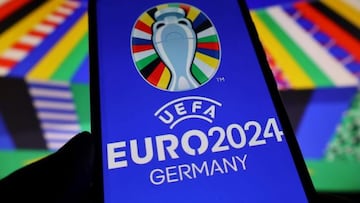Euro 2024: what happens if there is a tie in the group stage? Tie-breaking criteria
Germany plays host to the 2024 European Championships with some changes made for qualification from the group stages creating more opportunities.


Excitement for the 2024 European Championships in Germany has reached fever pitch as fans of the 24 nations dream of making history. For some, that is lifting the continental trophy aloft come 14 July. For others it’s simply qualifying for the knockout stages, or even just getting a single win on the board. Let’s take a look at some of the criteria for the teams getting out of the group stage.
The wait is over 😍#EURO2024 pic.twitter.com/qOywU4mcc0
— UEFA EURO 2024 (@EURO2024) June 14, 2024
UEFA Euro 2024: how many qualify from group stage?
First things first, here are how the groups have been arranged.
Euro 24 groups:
Group A: Germany, Scotland, Hungary, Switzerland
Group B: Spain, Croatia, Italy, Albania
Group C: Slovenia, Denmark, Serbia, England
Group D: Poland*, Netherlands, Austria, France
Group E: Belgium, Slovakia, Romania, Ukraine
Group F: Türkiye, Georgia*, Portugal, Czechia
As you can see, there are six groups of four and the top two from each will be guaranteed to progress to the round of 16. But there are a further four places available and these will go to the best third-placed nations. But how is that decided?
UEFA Euro 2024: what if teams finish group stage on same points?
As per the normal rules, a win in the group stage is worth three points, a tie gets a single point and there is nothing for a loss. Once all the games have been competed, the places in the table are known, but clearly there is a very good chance that teams could have the same number of points. So here’s how UEFA will determine the order:
UEFA Euro 2024: group stage tie-breakers:
- Number of points obtained in the match(es) played between the teams in question
- Superior goal difference in the match(es) played between the teams in question
- Number of goals scored in the match(es) played between the teams in question
- In the event of a three-way tie, where criteria 1-3 have managed to break the tie for one team, they are applied again but only to the match between the two remaining tied teams. If after this any tie still remains, we continue
- Superior goal difference in all group games
- Number of goals scored in all group matches
- If two teams are tied after playing each other in the final round of group games their ranking is determined by a penalty shoot-out.
- Lowest disciplinary points total (1pt per yellow card, 3pts for a red card after two yellows, 3pts for a straight red card, 4pts for a yellow followed by a straight red card
- Higher position in the European Qualifiers ranking
- In the event that a tie involves Germany, who were not involved in qualifying, it will be decided by drawing of lots
As you’ll note, the most likely factor to keep in mind is that head-to-head results come before goal difference.
UEFA Euro 2024: how are third-placed teams ranked?
Across the six groups, the third-placed teams (determined from the above rules) will be transferred into a separate virtual table to decide which four progress to the knockout stage. As those teams have not faced each other, the order of their ranking will be based on the following:
- Points
- Goal difference
- Goals scored
- Wins
- Disciplinary points
- European Qualifiers ranking (or drawing lots if Germany are involved)

UEFA Euro 2024: how is the round of 16 bracket formed?
Related stories
Once the 16 teams have been confirmed as per the above guidance, the teams will face off against each other based on the agreed UEFA structure. Due to the third-placed teams getting in, there are a lot of permutations that we will have a better idea of once the group stage is nearing its conclusion. To give some idea of how teams could meet, let’s look at some of the options for the group winnners:
Group A winners vs Group C runner-up
Group B winners vs Third place (Group A/D/E/F)
Group C winners vs Third place (Group D/E/F)
Group D winners vs Group F runner-up
Group E winners vs Third place (Group A/B/C/D)
Group F winners vs Third place (Group A/B/C)
As can be seen from this, four of the group winners will have an initial game against a third-placed team. The other fixtures in the round of 16 see the group runners-up meet each other. It’s worth noting that the winners of Groups C and F (expected to be England and Portugal respectively) will not face another group winner till at least the semi-finals.


Complete your personal details to comment